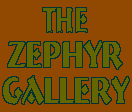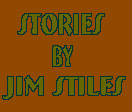

Once in a while something very like a vision comes along. Those, as we all know, are not scheduled in advance. They happen in subways, tangled woods, high plains, classrooms, prisons, battlefields. There are many recipes, special behaviors, for enhancing your chances. I've dipped into those from time to time. My problem is that recipes of that sort are basically programs. That is, somebody else's enlightenment plan for me.
While I like exhibits or explanations, such as a well-designed nature trail pointing to key objects that are clues to geology, zoology, botany .... and you're free to take it from there ... I positively hate detailed maps marking the way to what's good for me. "Vision" is not the best tag for what I'm thinking of here. I'm told that the poet Phil Whalen deliberately avoided the word, tried "identifications" instead. Phil was intensely aware of the difference between an experience and its description: "A distinct blue line. The thread of the discourse Tightens up too much, puckers the fabric." Homage to Hart Crane And how past experience conditions the ongoing present: "And that compulsively vacant (I mean tyrannical) sky/sea Nonexistent boundary (tyrannical to our eyes, Which have been taught to see) Becomes its imaginary self and we are saved again. Whew!" La Jolla in the Morning.
Still, I can't help talking about these vision things, and I'm going to call them special pauses in the usual pace; they stop me in my tracks, make me pay attention. Nevada. We're resting on brittle rocks, looking across a valley to a ridge where cliffs show in gaps in the pines. No jet trails in the high blue sky, no jays call, no fussing from hidden insects, no slightest whiffs of wind from skylines. A small creek is too far away to loft an iota of racket to where we are. The silence is a huge presence, nothing moves on the warm mountainside, I feel "lightened," free of the usual buzz of inside mindfulness. I feel admiration and amazement, happy to be opened out to the world. Stepping delicately here, trying to place my big feet clear of embroidery, I'll try to describe another pause: Iowa. I'm lost, on a county road, looking for U.S. 20. I stop and step out and spread the map on the hood of the pickup and discover the intersection where I went right instead of left. All I have to do is find a place to turn around on the raggedy gravel shoulders of the road. I fold the map, reach for the door, and stop. Silence again, that absolute quietude.
Tall corn everywhere blocks views and the sky is clear of air traffic. There are two farmsteads visible, one nearby, the other barely showing through high ranks of corn and a surround of trees. Nobody home, it seems. Mid-morning, has everybody gone to town? Never mind, none of my business. Nothing here is my business, the corn standing stark still, refusing to give me the slightest rustle of its over-ripe leaves. I wait, nothing changes, everything hemmed in by rank omnipresent vegetative growth, the road empty, no wind and the world going on as always, needing no help from me, an insignificant lonesome traveller, and it matters not a whit whether or not I am able to tune to those goings on, zillions and zillions of them, like the rise of water through corn stalk xylem into hungry air. Do those risings make sounds that a corn borer might hear, that I can't?
In this place where humans have seemingly remade everything in sight, corn is the power, it makes the road look narrow, pathetic. The houses are pathetic too, as though their people have put in years of hard labor and untold disappointments only to end up imprisoned, cut off from their own kind in a sea of corn. My knowing that the corn's genome has been altered by human cleverness and put in place by tremendous machines of great strength and complexity, made by human labor in other places ... all that knowledge is irrelevant ... the corn looks wild. I'm in the pickup now, time to go. As you see, Iowa was not Nevada, not by a long shot. In both places the world was overwhelmingly present, stretching me out of customary selfhood, but the flavors were very different. One was happy, the other a bit of a downer.
Looking back now, I see that when time and place and attitude conspire to create one of those pauses, the outcome is uncertain, and that there are many kinds of silences, just as there are many solitudes and ways of happiness. We're talking here about human experience, the real article, not some one-size-fits-all pie in the sky. On this planet you never know for sure what will take you. 50-caliber machine guns are laying down covering fire while we riflemen run down from the crest into a steep-sloped little valley and then up toward the enemy. The covering fire fills the place with racket, but it's not nearly good enough. We take the ridge, though I and a few others don't make it quite that far. Later, the waiting for enemy artillery to open up.
We're especially tuned to the quick slam of 88s. Awesome, those rifled precision weapons. (We didn't use the word "awesome" back then; the single word, 88, said it all). The enemy is in the habit of expertly zeroing in its artillery beforehand, preparing for retaliation that might lead to counterattack. I won't talk about after-battle sounds, I want only to point to the silence of waiting; it stretches out, grows. We're busy, but our combat senses focus on the high overarching waiting for more death. I notice the ragged trees of the ridges around us, silhouetted against dusky evening sky. Were the trees shrapnel-torn? I don't remember and it doesn't matter. What I do remember is this: the trees were not witnesses.. They stood there unmoved in the rich springtime earth, reaching, living. We humans bore witness, the only ones.
Yesterday I read a story by Doug Peacock (of grizzly bear fame. Grizzly Years. In Search of the American Wilderness. Henry Holt, 1990), telling of a journey with a friend, an 82nd Airborne vet, and a Tarahumara Indian, into the vast canyon country of the Sierra Madre. (Mountain Gazette, #96, August, 2003). It's a disjointed story well told, the disjointedness appropriate to the complex theme: an Indian partnering with a couple of footloose Anglo warriers who are not your typical Patagonia-clad adventure-seeking wilderness wanderers.
Day after day Peacock and his companions walk deeper into the Sierra Madre. The terrain is difficult. Peacock describes it with a convincing dramatic style, sparing of overkill. Differences between the three men emerge and Peacock doesn't flinch from those. The Tarahumara, Ramon, knows the country well, encounters it with all due fear and respect; his give-and-take with nature is an inheritance of centuries of Indian inhabitance of those mountains, modified of course by his own life experiences in the era of penetration by Mestizo timber barons and drug lords. His environmental sensitivities are not of the politically correct gringo variety, but his fear of souls of the dead, and how they can harm the living, resonates with his Anglo compadres. They too are obsessed by the dead. "What had driven us down here was the absence of dialogue, about the price of war, the unburied dead, civilians caught in the crossfire, the refugees, the incinerated tank crews." Silent accusers in dreams: memories of combat and betrayal. Dreams that come in the nights, nights that Ramon calls "days of the moon" when spirits roam.
These are the demons that won't go away, even in the magnificent Sierra Madre canyons. Peacock finds no easy way to banish them, and I doubt very much if that's what he wants, but I don't think he's addicted to despair. He says that his dreams might be "harbingers of change, my life in transition." I wish he had told us more about that transition ... where is he headed? ... but I read his story with great interest, glad to meet one who refuses to walk away from the past, or from comrades. "Comrades are ready to die for one another.
They may share a common objective, yet their real bond is with each other. The true goal is collective survival." How about enlarging this notion, to gather, to build toward a nation of brotherhood? Preposterous? Naive romanticism? Does look that way, in cold print. But aren't we engaged in a survival situation requiring collective solutions? Isn't something like that the fiery core of "The Other Superpower"? Amazing, isn't it, that we don't use the word, collective, very often? We're afraid of it. What else are we afraid of? How long can we stand still in our quagmire of suspicion and fear, of no-good-reason death and destruction? The saying is that "silence is golden." A nice generality, but the fact is, there are some silences that lurk within, waiting for us to break them wide open, by voices and acts.
In trying to crack my own acquiescence I've found that certain preliminary practices are helpful. One practice is to write citizen comments on Environmental Impact Statements. That's a step up from walking in the woods kicking roots and mumbling to yourself. Yes, I know, public comments don't make much alteration in the outcomes of federal projects. Furthermore, federal land agencies are in the process of subcontracting EIS comments to private enterprises. Can you imagine the nerve of it? Hard to believe that an environmental study on de-listing wolves, for example, might be read and analyzed out there somewhere in the market economy jungle, subject to god-knows-what pressures. For further details see Forest Magazine, Fall, 2003.
Okay, that's all bad news, but commenting does encourage spouting, getting your ducks in a row. You take a good look at the words and see that they've gone through a reverse "sea change," as they were dragged kicking and screaming from the black depths of your turmoil, and now they're staring back at you in the dazzle of daylight. Oh yes, it can be that dramatic. And then you dare to press the send button.
Then you might say, "What the hell, dare to live," and you forward two or three copies to newspaper "Letters to the Editor" sites. I recommend that step, it's good practice for another step, talking to a live human being who you know ahead of time does not agree with you. Later, you might even stand up and speak in an informal crowd or a formal meeting .... and so on ... but I'm beginning to think that saying a few words to another person might be the highest art and best way to get balls rolling. Now I have to practice what I preach.
Here, slightly abbreviated, my recent comment on a Bureau of Land Management EIS for the Red Desert of Wyoming. "I want to say something about the value of wide open spaces of Wyoming. That value inheres simply in its being a part of our roaming rights, and those rights are nothing but shams and slide shows when abundant habitat is lacking. We humans thrive in big spaces. It's in the heritage, it's in our history. We have to have those spaces unencumbered by pump jacks and structures and pipelines and traffic. A few years down the road the massive, frantic energy rush will have moved on to other pickings, many good jobs will be gone. It's happened before. "One day, returning from Oregon Buttes, I met a Texan. He was standing at the turn-off to Big Sandy. "Just looking," he said.
We talked for a while, but not about "looking," because what can you say, with words, about that? "Bureau of Land Management people of Wyoming, you're well acquainted with those habitats. I won't try to express what we all know well enough. We also know that the fundamental decision is not in your hands, it came from above. That's no secret. You had to word-smith the 'preferred alternative' so that it would appear to be the right way to go. For the record I support the Citizen's Wildlife and Wildlands alternative: No more drilling; buy out drilling rights, insure those great sweeps of territory as habitats for Wyoming roamers and Texans and others of our species, and for the others [other animals] who lived there thousands of years before any of us came on the scene."
(As far as I know, the current Red Desert EIS has not been "outsourced." Contact Wyoming Outdoor Council for update on the struggle. woc@wyomingoutdoorcouncil.org).







